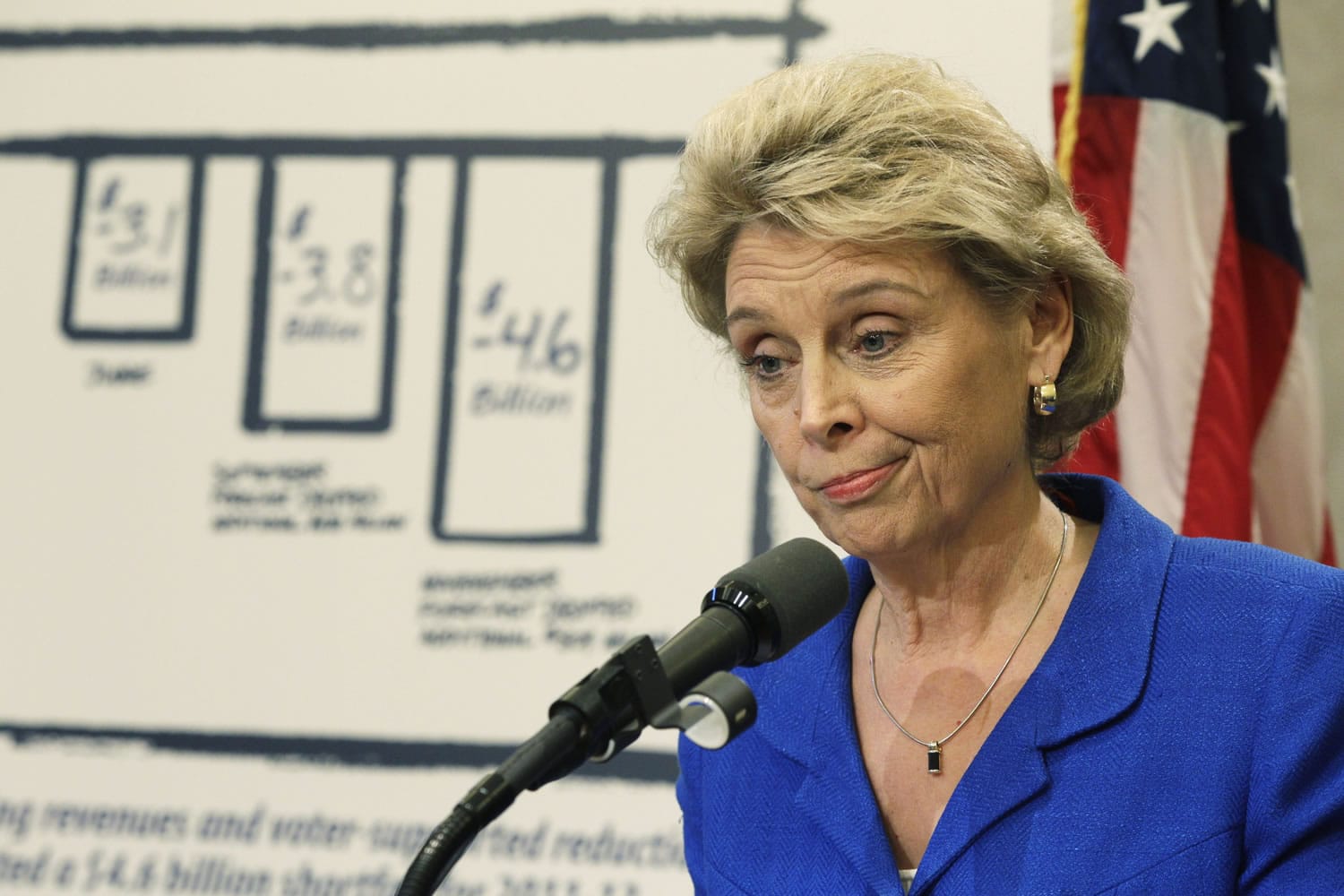Gov. Chris Gregoire said Tuesday she thinks a court challenge is needed to show whether tax increases in the Legislature actually require a two-thirds vote to be enacted.
Several House Democrats set the stage for a possible court challenge when they brought a bill closing a bank-tax exemption to a floor vote May 24. The bill got 52 votes, enough for a majority, but it failed to meet the supermajority test of 66 yes votes required by Initiative 1053.
The tax vote came the night before lawmakers adjourned their 30-day special session. House Speaker Frank Chopp said from the podium that he could not rule on the constitutionality question as speaker but welcomed a court’s help on the issue.
“I think there is a real argument to be made that you can’t restrict the Legislature in that regard,” Gregoire, a former three-term attorney general, said Tuesday. “I don’t know what the court would say in the end, but I do think it is a legitimate legal challenge.”
Gregoire spoke in response to a reporter’s question after she signed another batch of bills into law. She couched her comments, repeating what she had said frequently since proposing a budget in December that cut more than $4 billion in real and projected spending: Voters sent a message in November “that we had to live within our means.”
The second-term governor said Washington lawmakers did just that last week — passing a budget, House Bill 1087, that did assume new fees but no new taxes.
Gregoire said lawmakers do not agree on the constitutionality of a two-thirds vote requirement, “and I hope somebody challenges it just so we can put that issue to rest. Because there is a lurking belief among a number of folks in the Legislature that it is not legal — that in fact they are not restricted to a two-thirds vote to raise revenue.”
Eyman weighs in
Tim Eyman, sponsor of I-1053 and its predecessor, I-960, said the question already has been answered: Voters want a two-thirds requirement and have reached that conclusion four times. Eyman said 64 percent of voters approved 1053, and he has yet another two-thirds vote-requirement initiative in the works for the 2012 ballot.
The initiative promoter also said voters have consistently favored a two-thirds supermajority requirement for tax increases since passing Initiative 601 nearly 20 years ago. Eventually, he has said, the only way to settle the issue may be to enshrine it in the state constitution, which lawmakers could ask voters to do if a two-thirds supermajority of the House and Senate agreed.
Eyman said I-960 already has withstood legal challenges, and he cited the state Supreme Court’s 9-0 decision two years ago in a case brought by Senate Majority Leader Lisa Brown, D-Spokane. He paraphrased the court as saying, “This is a political tug-of-war you guys are in; you are fully capable of defending yourselves, and you don’t need the courts to decide this for you.”
But Democratic Rep. Jamie Pedersen, a Seattle attorney, said last week that Brown’s failed lawsuit and the ruling raised different questions than he would. Pedersen said the earlier suit raised the wrong issue before the wrong court — in effect bringing a writ request that asked the court to order Lt. Gov. Brad Owen to rule that tax votes only needed a simple majority vote.
The result: The court sent the question back to lawmakers and never got to the constitutionality question.
Look to California
Pedersen confirmed he is working with a few other lawmaker-attorneys, Democratic Reps. Laurie Jinkins of Tacoma and David Frockt of Seattle, on the legal question at hand.
“We have certainly not made a decision to pursue one,” Pedersen said. “As far as I know, no one else has made a decision to pursue one. It’s fair to say we had an interest in developing a set of facts that could be the basis for a challenge.”
Brown said last week she also still believes the limit is not constitutional and another challenge is warranted. Her predecessor, former Sen. Sid Snyder, D-Long Beach, also held that view, and even Owen was disappointed when the Supreme Court didn’t answer the underlying question in its March 2009 decision.
Asked what she thought of Eyman’s idea — to put the two-thirds vote into the Constitution — Gregoire said she didn’t know. But she pointed to California voters passing Prop. 25 last fall, which repealed a supermajority requirement for state lawmakers to adopt a budget.
“If the voters (in Washington) decide they want a constitutional amendment, I would only ask that they take heart of what happened in California — where they had a restriction and they removed it because what they discovered is they simply in these tough economic times could not manage their budget,” Gregoire said. “For us, do we want to replicate their mistake?”
Eyman and Jason Mercier of the right-of-center Washington Policy Center pointed out that California voters also voted in favor of Prop. 26 last fall. The latter measure extended the two-thirds requirement to legislative votes on taxes and fees in the Golden State.
Eyman said such a check and balance can provide more bipartisanship and a limit on taxes in Washington.



